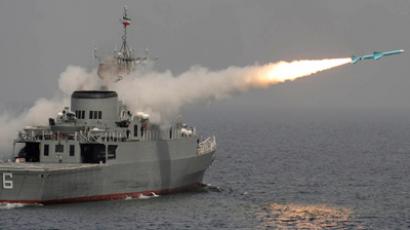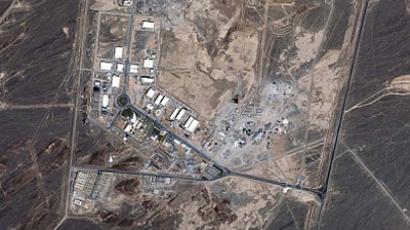Iran sentences American ex-Marine to death for spying
American Amir Mirzai Hekmati, who also holds Iranian citizenship, has been sentenced to death by a judge in Iran for spying for the CIA, local media reported on Monday.
The 28-year-old received the death penalty for “cooperating with a hostile nation, membership of the CIA and trying to implicate Iran in terrorism," the verdict said, according to the country’s semi-official Fars news agency.Last month, Fars reported that the prosecution had applied for capital punishment because the suspect "admitted that he received training in the United States and planned to imply that Iran was involved in terrorist activities in foreign countries" after returning to the US.According to reports, Hekmati, born in the US to an Iranian immigrant family, was shown on Iranian state television in mid-December saying in fluent Farsi and English that he was a Central Intelligence Agency operative sent to infiltrate the Iranian intelligence ministry.Fars then reported Hekmati repeated his confession in court on December 27, saying "I was deceived by the CIA. Although I was appointed to break into Iran's intelligence systems and act as a new source for the CIA, I had no intention of undermining the country."Hekmati was also accused by Iran of receiving training at US bases in Afghanistan and Iraq before being sent to Iran.His family, who live in Arizona, deny the charges against him, saying he went to Iran to visit his grandparents.His father, Ali Hekmati, claims his son joined the US military in 2001 and served in the Marines, where he was an Arabic translator.The family maintains Hekmati did not receive adequate legal representation. In a statement, they said his "only advocate in Iran is a government-appointed lawyer who he first met on the day of his trial. "We have struggled to provide Amir with an attorney in Iran. We have sought to hire at least 10 different attorneys in Tehran, to no avail." On Monday, the White House Press Secretary Jay Carney denied claims that Hekmati was somehow connected to the CIA.“Allegations that Mr. Hekmati either worked for or was sent to Iran by the CIA are false,” he said. “The Iranian regime has a history, as you know, of falsely accusing people of being spies, of eliciting forced confessions and of holding innocent Americans for political reasons.”Reports also suggest the US State Department has called for Hekmati's release, and spokesperson Victoria Nuland told reporters in Washington last week that the department is still waiting for the Iranian authorities to grant Swiss diplomats access to him in prison. The Swiss government represents US interests in Iran because Iran and America don't have diplomatic relations.Under Iranian law, Hekmati has 20 days to appeal, reports Associated Press.Amir Mirzai Hekmati was born in Arizona and graduated from a Michigan high school. His father Ali is a professor at a community college in Flint, Michigan.
Could Hekmati's case ignite the US-Iran powder keg?
Both the US White House and State Department have called for the "immediate release" of Amir Hekmati, calling his sentence "absurd" and using Swiss diplomats "to convey condemnation to the Iranian government." But despite the media attention around the story, many believe this case is not what is making the powers that be in Washington uncomfortable. Journalist and author Afshin Rattansi told RT that only one thing can cause the United States to push for a confrontation with Iran – and it is not the threat of execution of one of its citizens. The answer, according to Rattansi is crude and simple. "I'm not sure whether the United States cares much about its citizens; it goes around assasinating them by drone", Rattansi told RT. " As for what it thinks about its service men and women, who fight on its behalf – they dont much care about them either. No, the Strait of Hormuz would be the point."All this rhetoric could be aimed at one thing, said the London-based journalist – "getting those valuable petrodollars into the US Treasury."














